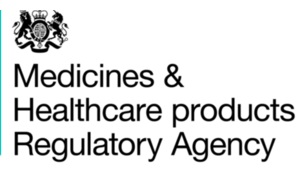-
10th Oct 2019, 01:47 PM
#8
Hi
Just to clarify if there is a need to access a blood fridge by untrained personnel, such as in an emergency, this would substantiate concessionary access to mitigate the risk of serious patient harm. As such these situations should be avoided as per the regulation highlighted by Chris above. The key here is that in these situations there is a clear audit of who what when how and why is recorded. How you achieve this is up to the site but a site must reassure themselves that the relevant risks associated with these situations are mitigated in accordance with good practice risk principles i.e. such as in the situation described by KarenW above, in your 'crash code' situation, temporary access is granted by a BMS so it could be argued that, in this situation, the person collecting the blood has been granted authorised access and if their actions are recorded and audited, although reactive, risks can be controlled to a degree.
In the points above:
1. System is linked to active directory - if staff let their Trust network password expire they are unable to access the blood tracking system. This is an issue with porters who very rarely use a PC for everyday work. Password can be reset 24/7 by calling IT staff but this takes time which you don't have in an emergency situation.
You could mitigate this by introducing a system that requires passwords to be re set before the actually expire via a checking and audit system of active password by the 'owner' of the database.
2. Each site where emergency blood available should have at least 2 trained blood collectors on duty at anytime - on this occasion one had failed to turn up for shift and the other didn't inform management of this so cover wasn't arranged.
You can mitigate this by again having regular audits of trained personnel to ensure that they are always in date and also maybe make sure that at least 3 are trained i.e. 1x on holiday, 1x Sick, 1x Spare. In addition was this situation partly caused by a failure in effective communication or a failure of staff to follow Trust Policy? If it was then you should investigate root cause and then mitigate as appropriate?
1. If clinical staff have to phone the lab for codes during an emergency this could result in a significant delay if the lab is unable to take the phone call or the phone system goes down ( think Murphy’s law ).
This should be exercised as part of your BCP self assessment process highlighting what the length of delay might be and what situation actually cause the delay. Once this is assessed you can then introduce mitigation within the context of your business processes.
2. Can policies/ training state that if the override is used- then only emergency group O units are collected? Obviously this would need monitoring for adherence.
This is a very fair point however it does not tell the whole story as you are still allowing access to unauthorised staff who may be able to take the wrong thing or tamper with other units in the fridge unless you are using a SMART fridge i.e. bloodtrack fridges.
Please remember i am only playing devil’s advocate here but the realisation with regards to the regs is that every process must be thought through to identify relevant risk (s) so it can be mitigated effectively to protect patient safety and not to deny essential treatment that may result in major morbidity and not to deny access to emergency treatment in such a rigid way that does not allow flexibility in accordance with possible situations that a site may face.
Another regulation that you may find a useful reference is:
9.1.6 Deviations from established procedures should be avoided as much as possible and should be documented and explained. Any errors, accidents or significant deviations that may affect the quality or safety of blood and blood components should be fully recorded and investigated in order to identify systematic problems that require corrective action. Appropriate corrective and preventive actions should be defined and implemented.
I hope this all makes sense and helps with your thoughts going forwards.
Kind regards
Mike
 Posting Permissions
Posting Permissions
- You may not post new threads
- You may not post replies
- You may not post attachments
- You may not edit your posts
-
Forum Rules





 Reply With Quote
Reply With Quote